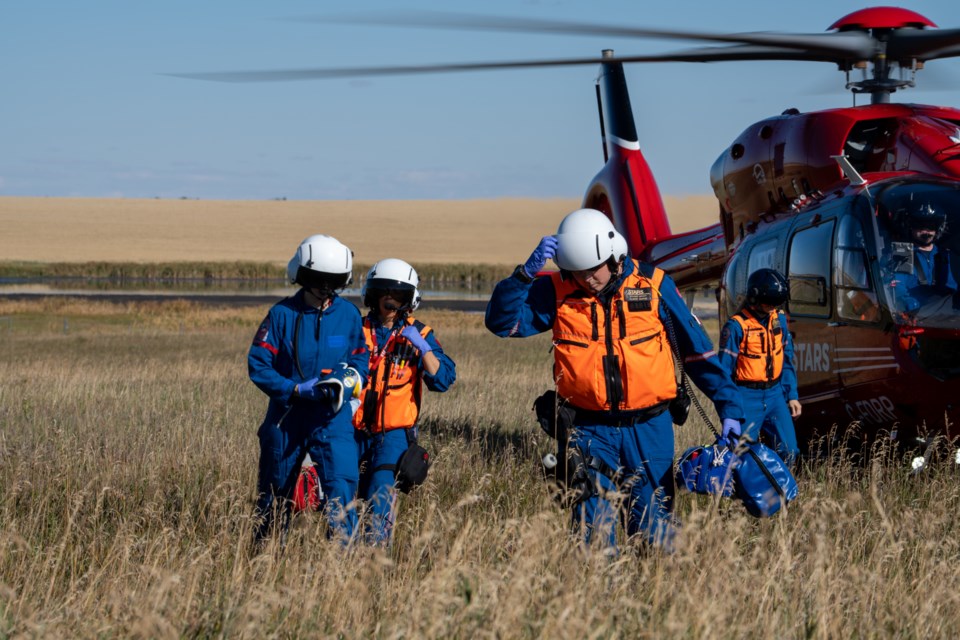SASKATCHEWAN--Since arriving April 30, 2012, STARS officially crossed the milestone of 10,000 missions flown in late December of 2023, just 11 years after arriving in the province.
The STARS website, Mission Records - STARS, outlines where each mission was flown in the provinces it serves, marking 1,018 in Saskatchewan for the 2022-23 fiscal year.
“In Saskatchewan, we operate three helicopters," says Jonah van Driesum, communications officer for Saskatchewan. "One is permanently stationed at each base, while the third rotates between the bases to ensure there is no gap in service when a helicopter has to undergo maintenance or regular servicing.”
STARS also says between the two bases they have 35 air medical crew (nurses and paramedic); 24 pilots and 23 transport physicians. The two bases are located in Regina and Saskatoon airports. This allows for the faster response time to patients in need.
“On average, we respond to three missions a day across the province, and approximately 1,000+ missions a year.”
Each base requires $10.5M to operate each year, or $21M for the entire province. Half of that total is provided by the Government of Saskatchewan. The remainder is left to the STARS foundation team, who work throughout the year to raise the additional $10.5M from corporate and community allies. This includes events like Critical Care on the Air radiothon and the Rescue on the Prairies challenge.
“Each mission costs approximately $5,400 dollars, though that fluctuates based on the distance the helicopter has to travel and the specific needs of the patient we are responding to.”
STARS also adds, “Thanks to the support of community members who generously volunteer areas of their property for use in STARS critical care missions. When a designated landing site is not defined, our pilots and Emergency Link Centre will work with first responders and folks on the ground to identify the best landing zone possible. The general requirements are that it is flat and free of obstacles.”
STARS provides training to first responders across the prairies to help manage landing zones for this exact scenario, ensuring the safety of people on the ground and our crew in the helicopter.
It usually takes about eight minutes from the time a call is accepted to the moment the STARS crews are in the air. Each helicopter has been converted into a flying intensive care unit, staffed by industry-leading medical professionals and equipped with cutting-edge medical technology and equipment. This equipment includes ultrasounds, blood bags and defibrillators, to name a few.
Saskatchewan residents know that their locations may include bumpy roads and STARS provides the best options for dealing with severe spinal and brain injuries where movement can be the patient’s worst enemy.
There are a wide variety of ways community members can help STARS. Community members can donate online at STARS.ca to help fund critical care missions. In addition, community members can host a fundraising event for STARS, and their team is always happy to help with the planning, promotion and delivery of those events through our community engagement team. Additionally, they always love to have new volunteers join the STARS team.
“Thanks to Saskatchewanians' incredible generosity we have been able to save thousands of lives across virtually every community in the province. Additionally, our partnerships with allies across the province have allowed us to introduce historic innovations, including being the first air ambulance service to carry blood on board in North America. “
STARS maintains their gratitude for ongoing support from communities across Saskatchewan, and with that being said, they also affirm they will continue to work as hard as possible to provide critical care, anywhere, at anytime to the next patient in need, stating, “because who you are, and where you live should never impact your chances of survival.”




